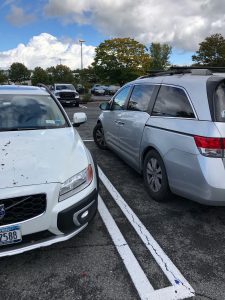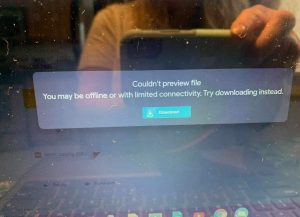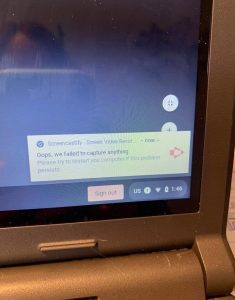I have been trying to write this post for days. I keep on getting distracted and drawn away from the place in my head that sees the opportunity to harness growth opportunities. They do exist even in these extremely trying times and it is important to be mindful of that. It might be easier if we say out loud this COVID-19 school year is a (temporary) and so far roundly awful new normal.
I think this is an especially valuable opportunity for grandparents and others to swoop in. We understand that this particular crisis is occurring on the still-relative heels of the Great Recession. We know help arrives in many forms – but it begins with a conversation.
Family life in America at this moment is incredibly stressful. “I’m so low. Focusing on the mental health of the kids". Or: “I think the general public has no idea of the demands being placed on teachers … how stressed we are, how mentally and physically exhausted we are … I’m averaging 4 hours of sleep a night, I’m a zombie." There is just so much to do. The word I heard the most was isolated.
Things that helped: listening to an audiobook. Cranking up a Spotify playlist and blasting it with earphones on. Text messages of solidarity also helpful.

The rhythm of life is totally discombobulated and all boundaries are gone. It has been a century since the Spanish Flu upended daily life. That too occurred amid social upheaval – it took many decades to unpack that pandemic. Historians said that accounts were lost to history because of World War One. I wonder now if it was simply because no one had a nanosecond to write anything down. To function at this particular speed, it can be helpful to stick tight to the at-this-second task at hand. For purposes of self-protection, I have already blocked some days I found especially frustrating in their thrumming-electric-chaotic-stress and simultaneous drilling sameness. It’ll take a while to be able to think about what has happened, let alone record it.
Parents arrive at the beginning of the school year as burnt out as they have ever been. In confusing-at-best district-by-district-state-by-state plans that range from the in-person to the hybrid to the remote challenges to learning present as a raft of multiple zoom links, usernames, and passwords. Even where digital access is reliable and there are enough devices, teaching young children on Zoom is incredibly difficult. Parents are freaking. Speaking for myself, I can’t even begin to teach that weird new math – (and plus I’m pretty sure I was not doing exponents in fifth grade). From a parent: “It’s two weeks in and with the ADHD, I have no idea how we are going to do this. It’s a constant battle. I have to work too. All I do is fail." Parents go to sleep exhausted and wake up spent.

The need to celebrate the courage children have shown will enable them to take empathy and understanding as one of the lessons they learned. Parents are trying hard to obscure their levels of stress – and sometimes (ok, often) they fail. It’s really hard to model belief in the certainty children may need when workdays begin at 10:00 p.m. Reserves of parental patience dwindle. Wise kids are learning to be alone (a great thing in many ways) – and still, they miss each other. There are complicated rules about socializing. The springtime message that accompanied abrupt school closures focused on a convoluted explanation called “flattening the curve". This made no sense at all to children. However, the new message: about their ability to easily spread COVID-19 to their loved ones is straight-up terrifying. Children worry about people they love.
I know children withdrawing from Zoom because seeing their friends without being able to see them is too hard. There are upsides to the discovery of the limits of digital for social. They are internally translating their experience to tell their own stories to themselves. Listen to them recount their micro losses – no resolution about who won the keep-one-pencil-longest conservation challenge. (“I was winning!") We can help them by affirming the pain and pleasure of nostalgia. We can assure them that we will emerge from the COVID-19 pandemic. We can remind them to be aware of small ways to help others.

Parents need a little extra help from those who love them. Parents are very worried about money. The cost of college has soared in comparison to wages. Job insecurity in a market that has veered more and more to a gig economy creates a kind of terror that is hard to express. Support is a text message, groceries, or a surprise take-out delivery card. It’s important that everyone check in with each other – and show patience. Once mom shared: “The burden on mom’s is tremendous … work from home, assist with remote school, feed healthy meals, activities. It’s tremendously overwhelming. And then I have people in my life who complain I don’t text them back. It’s too much, but no end in sight."
We are often raised not to intrude. This is often an excellent practice. But for now, go ahead and intrude. Little gestures of solidarity do go such a long way.
Give InKind does not provide medical advice, diagnosis, or treatment. We have an affiliate relationship with many of the advertisers on our site, and may receive a commission from any products purchased from links in this article. See Terms & Conditions.